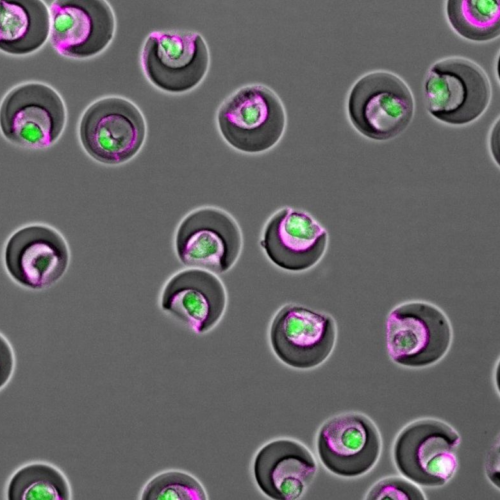by Morayo Ogunbayo Credit: Pixabay/CC0 Public Domain We sing about how Christmas brings “tidings of comfort and joy,” but the holiday also brings something not so “merry and bright.” ADVERTISING In fact, heart attacks and strokes surge during the last two weeks of December, according to the American Heart Association, with Dec. 25 being the...
Tag: <span>heart attack</span>
Database analysis identifies ‘sweet spot’ for safe surgery after heart attack
by University of Rochester Medical Center Credit: Pixabay/CC0 Public Domain After a heart attack, aging adults face double or triple the risk of life-threatening complications—like a debilitating stroke or another heart attack—when they move forward with elective noncardiac surgeries too soon, according to new University of Rochester research published in JAMA Surgery. A deep dive into the...
Heart signals brain to boost sleep for healing after heart attack, study finds
by The Mount Sinai Hospital Microscopy images of monocytes in the brain of a mouse after a heart attack. Schematic of hypothesized mechanism: after a heart attack, monocytes are released from the bone marrow and recruited to the brain where they produce TNF to increase sleep which limits stress signaling to the heart and promotes heart...
Sex-specific heart attack risk factors linked to circulating proteins
by Justin Jackson , Medical Xpress Graphical abstract. Credit: European Heart Journal (2024). DOI: 10.1093/eurheartj/ehae658 Uppsala University and Karolinska Institutet researchers have identified 45 proteins in the blood that are associated with the risk of myocardial infarction (MI), commonly known as a heart attack. Of the 45 protein associations, 13 were specific to women, and one was specific...
Signs and Symptoms of a Silent Heart Attack
A silent heart attack, also known as silent myocardial ischemia, is a heart attack with either no symptoms or minimal, unrecognizable symptoms. The presence of a silent heart attack is a strong predictor of mortality. Image Credit: Indypendenz/Shutterstock.com What is a silent heart attack? A silent heart attack is a condition of reduced blood flow...
Invention quickly detects earliest sign of heart attack
Fast, accurate blood test could speed results to physicians, first responders Johns Hopkins University image: Johns Hopkins research Peng Zheng with the heart of the invention, a tiny chip with a groundbreaking nanostructured surface on which blood is tested. Credit: Will Kirk/Johns Hopkins University With heart attacks, every second counts. A new blood test diagnoses...
MNT Investigates: Do ulcerative colitis treatments reduce the risk of heart attack?
Research has linked ulcerative colitis (UC) to an increased risk of heart disease, including heart attack and stroke. Some UC treatments may help reduce the risk of heart problems, though more research is necessary. UC refers to chronic inflammation in the inner lining of the large intestine. People with UC may also develop inflammation in...
Blood test of three factors predicts 30-year risk of heart attack, stroke and cardiovascular death in American women
News Release 31-Aug-2024 A study led by Brigham researchers finds that measuring three modifiable factors together provided greater information on risk compared to any marker used alone; inflammation shown to be at least as important as cholesterol, yet rarely measured Peer-Reviewed PublicationBrigham and Women’s Hospital KEY TAKEAWAYS Brigham researchers assessed data from more than 27,000...
Study: Quitting smoking nearly halves heart attack risk, cutting down does little
August 29, 2024 by European Society of Cardiology Credit: Pixabay/CC0 Public DomainAccording to research presented today at ESC Congress 2024 patients with stable coronary artery disease who quit smoking at any timepoint after their diagnosis reduced their risk of a major event by almost 50%. In contrast, there was minimal impact on cardiovascular risk in...
Sorting therapeutic stem cells by function improves healing after heart attack
SCIENCE & TECHNOLOGY NEWS Selecting specific cells to be used in an investigational therapy led to improved recovery of heart function in a new study employing a lab model for myocardial infarction, the medical term for heart attacks.A team led by researchers at the California NanoSystems Institute at UCLA and Columbia University developed a sorting...


